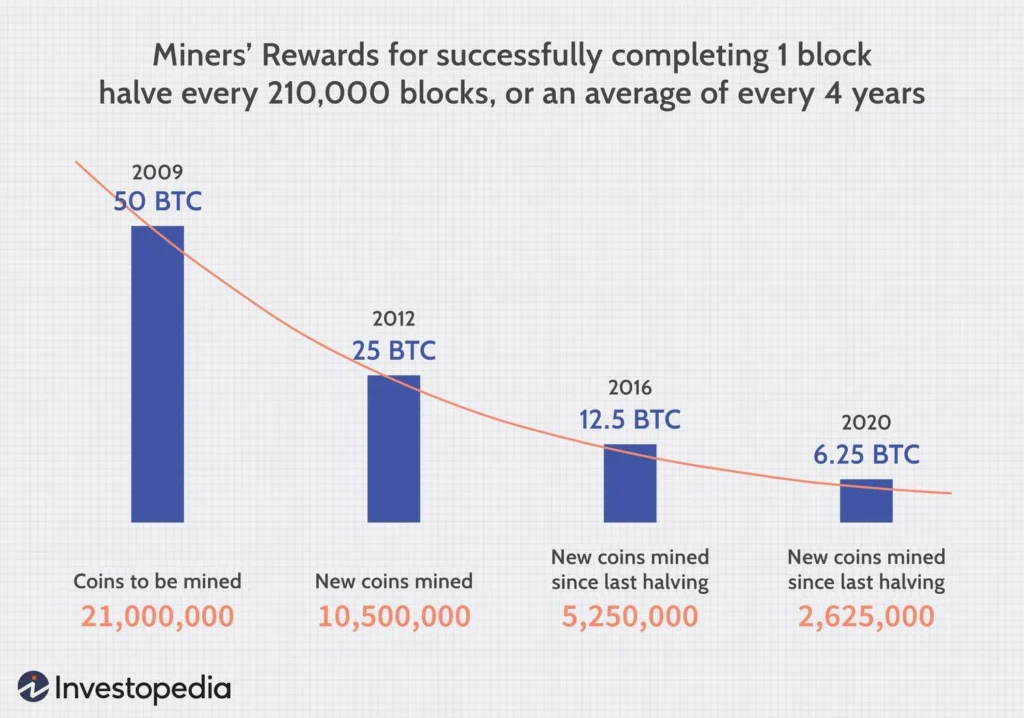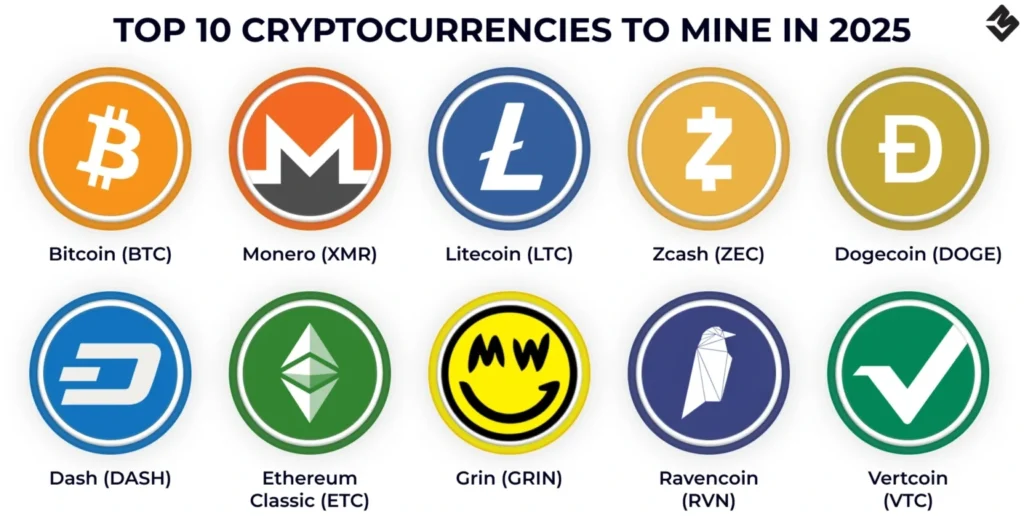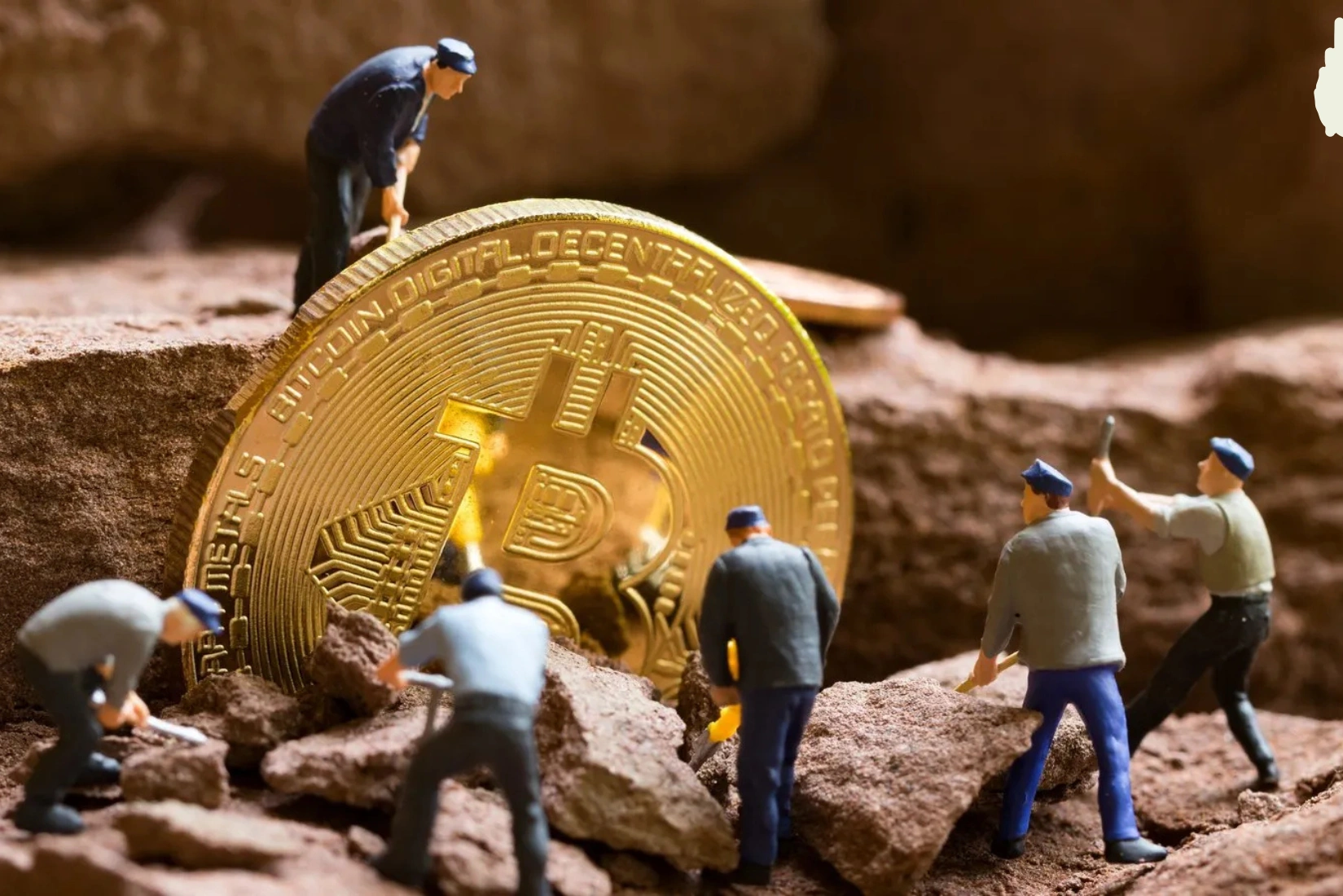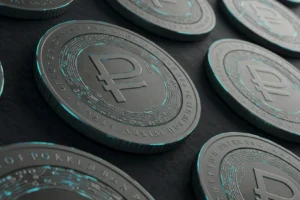Trying Crypto Mining for the First Time? Here’s What You Need to Know
You don’t need to be a tech expert—or even particularly good with computers—to be curious about crypto mining. For many people, it starts with a question: “What exactly is mining, and can I try it too?”
In 2025, cryptocurrency is no longer new, but it still feels unfamiliar to a lot of us. Mining, in particular, can seem like something reserved for people with high-end machines and coding skills. But in reality, it’s a lot more accessible than most assume—especially if you’re just experimenting, learning, or dipping your toes into digital currency for the first time.
The Concept: What Is Crypto Mining in Simple Terms?

Credit from Investopedia
Let’s skip the buzzwords and technical talk for a moment. When people talk about crypto mining, what they really mean is this: using your computer to help process transactions on a blockchain network.
The blockchain is like a digital ledger—a record of who sent what to whom. But instead of being controlled by one central authority, it’s maintained by lots of independent participants across the world. Miners are those participants.
In return for helping verify transactions and keeping the network running, miners receive small rewards in the form of cryptocurrency. Think of it as contributing your computer’s power to a community effort, and getting a little thank-you gift in return.
Why Would a Beginner Want to Try Crypto Mining?
Honestly? Not everyone mines to make money. Some do it just to see how it works. Others treat it like a hobby—a way to learn about crypto through doing rather than reading.
If you’ve ever asked, “how does crypto mining work for beginners?” or wondered if it’s possible to mine without buying a room full of gear, then you’re already on the right track. The modern mining experience can be surprisingly beginner-friendly if you approach it with the right mindset: learning first, profits later (if at all).
Some beginners start just by mining a little bit of altcoin on their home laptop, testing the waters. Even if the returns are tiny, the experience often leads to deeper understanding of how blockchains and digital assets work.
What You’ll Actually Need to Try Mining
Here’s the good news: you might already have what you need. If you own a PC or gaming laptop with a decent graphics card, you’re already ahead of the curve.
To begin, you’ll need three main things:
- A computer (ideally with a GPU if you want meaningful results)
- Mining software
- A digital wallet to collect any rewards
That’s it to get started. You can download beginner-focused programs like NiceHash, which guides you through installation, benchmarks your system, and starts mining for you automatically. You don’t need to know how to code or understand every technical term.
Mining works quietly in the background while you browse the web or watch videos. For casual users, it’s a very low-effort way to get a feel for how the system operates.
What Does a Beginner-Friendly Setup Look Like?
Imagine this: You download a mining app, install it on your PC, create a digital wallet, and press “start.” The software begins running, using a bit of your system’s power to help process blockchain data. You might not see big numbers at first—maybe just a few cents here and there—but those numbers represent real crypto you’ve earned.
It’s not flashy. There’s no dramatic sound effect or animation. But that quiet, steady process? That’s mining in real life. And for many beginners, that first tiny payout is surprisingly exciting.
Will You Get Rich from This?
Probably not—at least not from a beginner setup. It’s important to say that up front. The early days of massive crypto mining profits from home computers are mostly over.
But what you will get is hands-on knowledge. And in the world of cryptocurrency, understanding how things work is often more valuable in the long run than a few dollars’ worth of coin.
That said, mining can still be modestly profitable if you’re efficient with your setup, choose a good coin, and keep electricity costs low. But many people see it more as an educational step toward broader participation in crypto—trading, investing, exploring NFTs or decentralized finance.
What Coins Should Beginners Mine?

Credit from Crypto Miner Bros
Bitcoin might be the most famous, but it’s also the hardest to mine as a beginner. The competition is too high, and the equipment needed is specialized and expensive.
That’s why many beginners explore altcoins like:
- Ravencoin
- Ethereum Classic
- Litecoin
- Monero (for CPU mining)
These coins have different requirements and tend to offer a more accessible entry point. Your mining software will often help recommend what’s best for your hardware.
A Quick Word on Safety and Scams
Like anything involving crypto, mining has its risks—especially when money is involved. Be wary of platforms that ask for upfront payment, or websites that promise guaranteed profits. There is no “get rich quick” in mining.
Stick with tools that are well-reviewed, transparent, and commonly used. Join online forums or communities like Reddit’s r/cryptomining or beginner Discord groups where others share honest advice.
Mining should never feel like gambling. If it does, take a step back and revisit your goals.
The Final Word: Just Try Crypto Mining
Crypto mining isn’t for everyone—but if you’re curious, there’s no harm in trying. You don’t need to make a big investment or have a perfect setup. Just a working machine, a free afternoon, and an open mind.
The first time you watch your system process a few hashes and send a tiny sliver of coin to your wallet, you’ll realize something important: you’re now part of the network.
And that’s a cool place to start.




